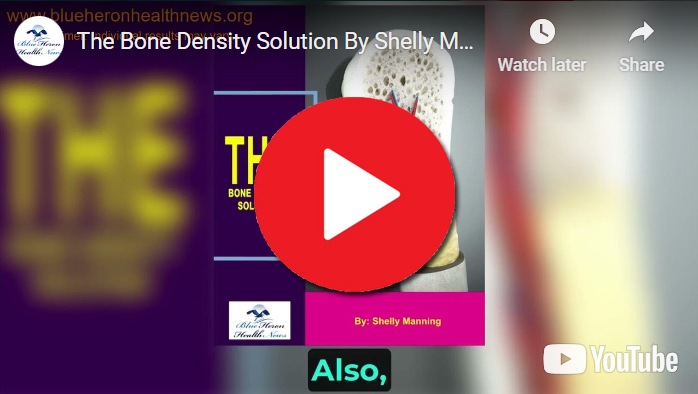
The Bone Density Solution by Shelly Manning As stated earlier, it is an eBook that discusses natural ways to help your osteoporosis. Once you develop this problem, you might find it difficult to lead a normal life due to the inflammation and pain in your body. The disease makes life difficult for many.
What resources are available for students with low bone density in Australia?
Students with low bone density in Australia have access to a range of resources to support their health and academic needs. These resources include medical services, educational accommodations, physical activity programs, and support networks. Here’s a detailed overview of the available resources:
Medical and Health Services
1. General Practitioners (GPs) and Specialists
Primary Care:
- GPs can provide initial assessment and ongoing management of low bone density, including prescribing medications and recommending lifestyle changes.
Specialists:
- Referrals to endocrinologists, rheumatologists, or orthopedic specialists for more specialized care and management of conditions like osteoporosis.
2. Hospitals and Clinics
Public Hospitals:
- Access to specialized clinics and services for bone health, including bone density scans (DEXA scans) and multidisciplinary care teams.
Private Clinics:
- Private healthcare providers offer specialized services and shorter waiting times for consultations and diagnostic tests.
3. Allied Health Professionals
Dietitians:
- Provide personalized dietary advice to ensure adequate intake of calcium, vitamin D, and other nutrients essential for bone health.
Physiotherapists:
- Develop tailored exercise programs to strengthen bones and improve overall physical fitness.
Occupational Therapists:
- Assist with adaptive techniques and tools to support daily activities and prevent injuries.
Educational Accommodations
1. School Support Services
Individual Education Plans (IEPs):
- Customized plans that outline specific accommodations and support services for students with health conditions affecting their learning.
Health Support Plans:
- Plans developed in collaboration with healthcare providers to address medical needs during school hours, including medication administration and emergency procedures.
2. University and TAFE Services
Disability Services:
- Universities and Technical and Further Education (TAFE) institutions provide disability services to support students with medical conditions, including low bone density.
- Services include academic accommodations such as extended deadlines, note-taking assistance, and accessible learning materials.
Counseling and Psychological Services (CAPS):
- Access to mental health support to help manage the emotional and psychological impact of living with a chronic health condition.
Physical Activity Programs
1. Community Programs
Local Fitness Centers and Gyms:
- Offer classes and facilities tailored for individuals with low bone density, such as low-impact aerobics, yoga, and Pilates.
Swimming Pools:
- Many community pools offer aquatic exercise classes, which are gentle on the joints and beneficial for overall fitness.
2. University and School Sports Programs
Adaptive Physical Education:
- Schools and universities may offer adaptive physical education programs that accommodate students with low bone density, ensuring they can participate safely in physical activities.
Sports Clubs:
- Inclusive sports clubs that provide opportunities for physical activity in a supportive environment.
Support Networks and Advocacy Groups
1. Support Groups
Local Support Groups:
- Groups such as Osteoporosis Australia offer local support groups where individuals can share experiences and gain emotional support.
Online Communities:
- Online forums and social media groups provide platforms for connecting with others facing similar challenges.
2. Advocacy Organizations
Osteoporosis Australia:
- Provides resources, information, and advocacy for individuals with low bone density. They offer educational materials, support services, and information on managing osteoporosis.
Arthritis Australia:
- Supports individuals with various musculoskeletal conditions, including osteoporosis, through education, advocacy, and support programs.
Financial and Practical Assistance
1. Government Support
Medicare:
- Covers part of the cost for bone density scans, GP visits, and specialist consultations.
Pharmaceutical Benefits Scheme (PBS):
- Provides subsidized medications for the treatment of low bone density and osteoporosis.
2. Scholarships and Grants
Disability Scholarships:
- Many universities and organizations offer scholarships for students with disabilities, including those with chronic health conditions like low bone density.
Financial Aid:
- Government and non-profit organizations provide financial aid to help cover medical expenses, educational costs, and other related expenses.
Conclusion
Students with low bone density in Australia have access to a wide range of resources designed to support their health, education, and overall well-being. These resources include medical services, educational accommodations, physical activity programs, support networks, and financial assistance. By leveraging these resources, students can manage their condition effectively and achieve their academic and personal goals. Collaboration with healthcare providers, educational institutions, and support organizations is key to ensuring comprehensive and tailored support.
The Bone Density Solution by Shelly Manning As stated earlier, it is an eBook that discusses natural ways to help your osteoporosis. Once you develop this problem, you might find it difficult to lead a normal life due to the inflammation and pain in your body. The disease makes life difficult for many.
